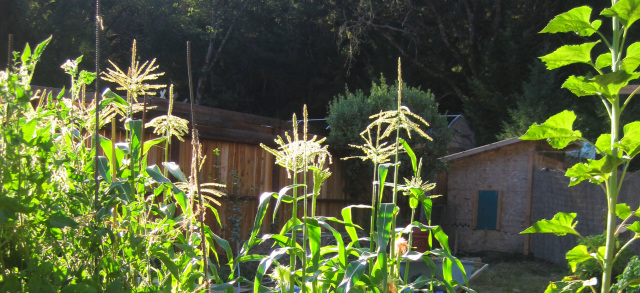- Seed Collections and Kits
- >
- Three Sisters--The Original Companion Planting
Three Sisters--The Original Companion Planting
The staffs of life in America for over a thousand years, corn, beans, and squash were called the Three Sisters. All of them provided food that would store for the winter without refrigeration. They were grown together in such a way that each created good conditions for the others. The corn created a trellis or pole for the beans to grow on. The beans have colonies of beneficial bacteria on their roots that are able to suck nitrogen from the air and fix it into the soil to prevent nutrient depletion. The corn secretes sugars from its roots that nourish these bacteria. The squash shades the soil to prevent the sun from making the soil dry hard, providing perfect conditions forthe beans and corn to grow.
Our collection contains a dry corn for cornmeal or polenta, pole beans, winter squash, and an information sheet with detailed planting information.

